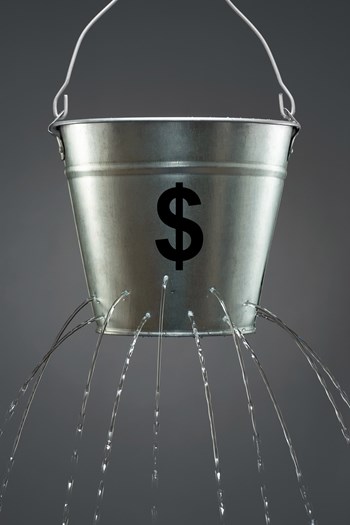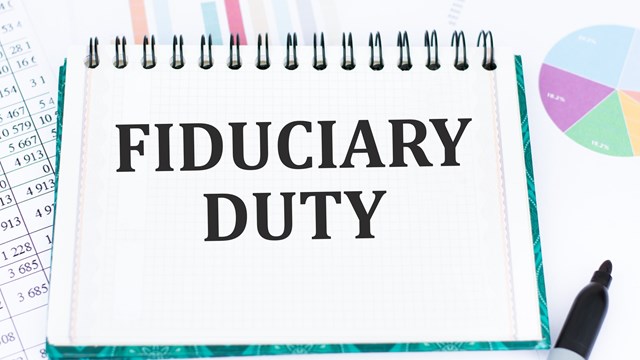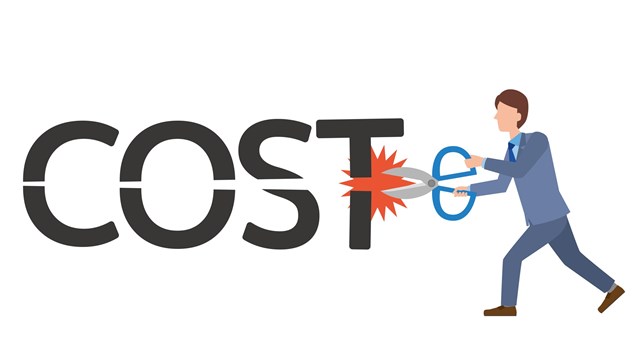
The vast majority of co-op and condominium boards are well intentioned and work diligently with their management and accountants to draft and monitor their annual budgets—and recalibrate them as necessary. Despite their best efforts to keep costs under control, however, many communities find that expenses often exceed their projections. Even in the absence of an unforeseen crisis or major repair project, it often seems like money is just leaking out of the system. The question is, where does it go—and how can we plug up the leaks when we find them?
Financial Leakage Defined
Avi Zanjirian is a partner at the accounting firm of Czarnowski & Beer, and works with clients in New Jersey and New York. According to him, financial leakage is more often a result of inattention than of outright negligence or fraud. To find these blind spots, “We look at it from an auditor’s perspective,” he says. “You might be paying electric, water usage, and repairs, and all are within budget. But at the same time, you may not be looking at all the line items regularly to make sure they’re working efficiently.” Zanjirian recommends taking a hard look at every line item in your budget on a year-to-year basis, and assessing whether you’re getting the most for your money (or even just getting what you’re paying for) from your community’s vendors and service providers. “Do you have the best vendors, contract terms, etc.?” Zanjirian says. “As contracts expire, you should be checking this.”
Another factor Zanjirian points out is the popularity of using autopay systems to send out payment for recurring bills. While the convenience of a ‘set it and forget it’ payment option is undeniable, it can often mean that less close attention is paid to cash outflow every month. This is why it’s important to periodically take a close look at your community’s accounts payable, as well as to conduct an end of year review to determine whether costs went up, and if they did, why? “It could be because no one negotiated a new contract or a misplaced charge,” says Zanjirian. “In terms of metered services like electric and water, are meter readings estimates or actual? Too much stuff is on autopilot.”
He goes on to list other areas that should be scrutinized: “Are we looking at real estate taxes and protesting them every year, for example? Another costly area is energy repairs, supply and maintenance, and service contracts. These should be evaluated every two to three years. Are rates competitive? The same should be done with professional services like auditors, attorneys, engineers, and architects. There’s also the minutia—things like cleaning supplies. What’s cheaper? Mr. Clean versus Fabuloso, for instance. But boards should remember, you generally get what you pay for—especially with professional services—so don’t try to save a few dollars on an attorney or an accountant and expect top shelf service.”
According to Karen Sackstein, principal with The Condo Queens, an accounting firm in New Jersey, “Financial leakage can come from two directions: the income side, and the expense side. On the income side, associations sometimes absorb costs that really are the responsibility of individual unit owners. This is more common in high-rise buildings. Associations should always look at their governing documents to determine what their common elements are, what the association is responsible for maintaining and repairing, and what should be paid for by owners.”
That said, Sackstein continues, “The larger piece of the puzzle is on the expenditure side. Contracted vendors may be performing additional work and charging for it—and that should be covered under the contract. It’s critically important to be specific in contracts so you don’t get overcharged. Another area to consider is competitive bidding. If you’ve had a contractor for a long time, check the market. Are you getting maximum services at the best price? Every so often, go out into the market to check bids.”
Dan Wollman, CEO of Gumley Haft, a Manhattan based co-op and condo management firm, adds that “leakage occurs when we spend more than we budget for or anticipate. Waste can figure in when we overuse supplies, for instance.” He points out that leakage also occurs when management isn’t paying enough attention to the division of responsibility between owners and corporations or associations.
“When we do work within apartments that owners should pay for and it’s not billed back correctly, we have substantial and costly leakage,” Wollman says. “There are also utilities such as water and sewer, electric and gas, as well as other issues with recording those billings; are you being charged correctly? In one case,” he says, “we had an excessive water bill in one building we manage. It wasn’t clear if it was a leak or there was a problem with the meter. We had the meter recalibrated, and then found a leak in the condensate tank. It turns out that was the source of the actual physical water leak that led to the financial leakage.”
Audits
The best way to determine if your property is suffering from financial leakage is to complete a thorough audit of your financial records. “We look at it from two perspectives,” says Zanjirian. “The first is at what the projected or expected amount of an item was—or what it should have been—and if it’s out of line with projections. If it is, we go to determine why. Let’s say a project should have cost ‘X’ dollars, but it cost 10 percent more—or alternatively, say there are more payments to a vendor like an exterminator than expected; we do further investigation. It has a forensic aspect; perhaps you were misbilled. Or was there maybe an extra visit to the property for some reason? We will verify, correct, and confirm, but I can’t tell you if you overpaid until our assessment is complete. In the end, the numbers never lie.”
When working with auditors, Wollman says that as a manager, he will provide the board raw information, vouching for bills, and examining any written for over a certain set amount. He will also compile a financial statement as a budget and comparative tool. “It must be accurate, thoughtful, and realistic,” he says.
The pros agree that the best long-term approach to controlling financial leakage is vigilance. Management and boards should be reviewing expenses on at least a monthly or quarterly basis and coordinating with their accounting professionals when any unexpected expenses occur. Zanjirian suggests that a ‘Round Robin’ approach may be best. Auditors should look at different items every year. Some years energy costs or metered services should be scrutinized. Other years it might be supplies or annualized repairs.
After an accounting audit, Wollman checks against his own projections. “If I did a good job, it’s close,” he says. “If something is out of whack, we turn to a specialist.” In addition to accountants, “there are also professionals who can renegotiate your water bills and other services with the city to get you a reduction. They are familiar with city programs you might not be familiar with.” Wollman points out that this can help—but it does cost money. “You have to pay for these services.”
Zanjirian also says that while it’s primarily the responsibility of the association or corporation treasurer to review expenses on a monthly basis and compare them to budgeted projections, every board member should be reviewing these numbers themselves, even if they don’t have a professional background in finance or accounting. “With new board members,” he says, “they can call me and I will walk them through the monthly statements and how to view them. More than one pair of eyes is always better.”
“There should be regular board participation in reviewing actual costs and seeking comparable information from other associations to see what they are paying and getting from vendors,” adds Sackstein. “Having a good management company with a good reputation and a wide network of vendors helps as well. When doing a capital project, do proper due diligence on vendors to make sure they are reliable.”
Don’t DIY
Unless there are board members who have extensive professional experience in real estate, finance, and accounting, a board should not undertake a full audit of their expenses on their own, says Zanjirian. When it comes to association finances, it’s best to hire a specialist. “Accountants do [audits] and studies. There are also consultants who do expense studies specific to your spending. Appropriately qualified managing agents can also do them. Much stems from how good the management company is. The best run buildings have good, involved board members and great managers, but you should still seek professional advice.”
Wollman also warns against homespun audits, and points out that most bylaws require that an audit be done annually—and conducted by a certified accounting firm.
Sackstein says that the financial auditing or review process should be a collaborative effort between the association’s accountant, manager, and board. If there is a serious concern about fraud, she recommends hiring a professional team to examine forensics to ensure they get it right.
Scott Piekarsky, a partner at the Hackensack-based law firm Phillips Nizer, cautions boards: “The whole idea behind an audit is to have an outside impartial professional review and test the books and records. It’s the highest level of accounting review, and must be done by the proper outside accounting firm. By not doing that, anything else quite frankly is just not an audit. Therefore, the board would be shirking their fiduciary duty and responsibility. They could be compelled to do so if one filed suit.”
In the final analysis, vigilance is the key to maintaining the financial health of your co-op or condominium community. That vigilance requires a team and a plan. That team includes accountants, auditors, managers, cost specialists, and board members. Reliable projections of expenses and regular monitoring of those projections against real expenditures are crucial to catching any financial leakage. In the long run, vigilance is more effective than wishful thinking. In business—and that’s what your community is—unexpected bumps in expenses are usually the result of poor monitoring, not one-time blips on the economic horizon.
A J Sidransky is a staff writer/reporter for CooperatorNews, and a published novelist.









Leave a Comment